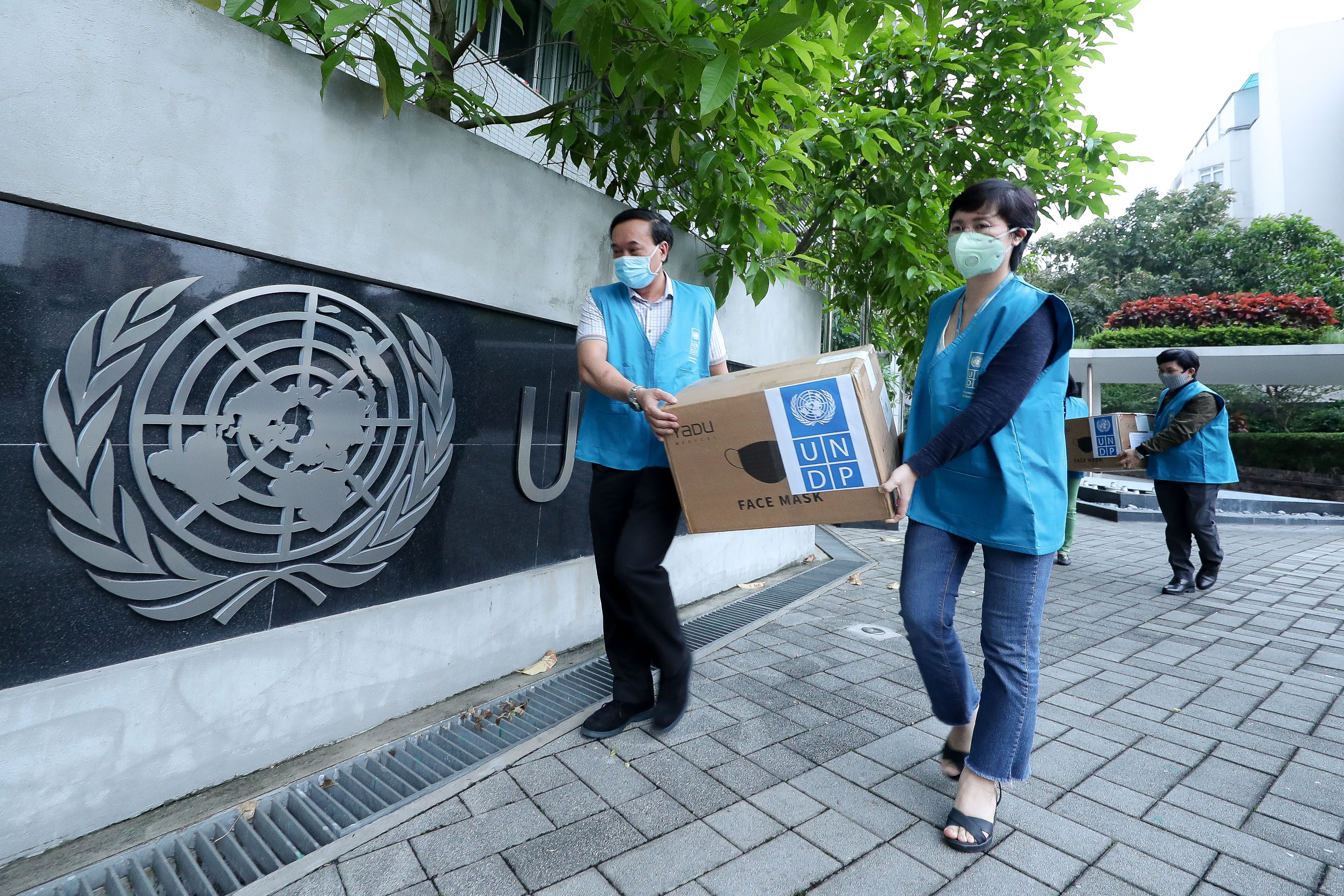
Ha Noi, June 13, 2023 - The Ministry of Natural Resources and Environment and UNDP organized a technical workshop on "Assessing and promoting the payment for ecosystem services in Viet Nam." During the workshop, the research team from UNDP and the Institute for Strategy, Policy, Resources, and Environment presented a foundational report for "developing provincial and grassroots payment schemes for natural ecosystem services, as well as preparing a pilot project for the payment mechanism of carbon sequestration and storage in marine and wetland ecosystems."
Payment for Ecosystem Services (PES) has been widely recognized as a successful policy tool for natural resource management in over 60 countries. These programs have been implemented for various ecosystem services globally, including biodiversity conservation, watershed services, carbon sequestration, and scenic beauty. The total annual payment amount for PES programs worldwide exceeds 36 billion USD.
In Viet Nam, the successful implementation of payment for forest environmental services has contributed to increased financial resources for forest protection and development over the past decade. The lessons learned from forest environmental services provide a basis for scaling up similar mechanisms for other ecosystems, including marine and wetland environments. Although Viet Nam has implemented "PES-like" initiatives for marine and wetland ecosystems, there is currently no comprehensive payment for ecosystem services for these environments. Some practical applications include entrance fees for protected marine and wetland areas, co-management models for fisheries resources, and the development of environmentally friendly aquaculture methods in coastal areas with the support of international organizations and related sectors.
Speaking at the workshop, Mr. Dao Xuan Lai, Head of the Climate Change and Environment Unit of UNDP Viet Nam, said, "Regarding the issue of financing biodiversity in Viet Nam, UNDP has implemented initiatives such as sustainable financing for biodiversity, nature-based tourism, co-management of fisheries and natural resources, and promoting the implementation of payment mechanisms for natural ecosystem services."
He emphasized, "Viet Nam needs practical contributions to achieve the ambitious biodiversity goals set out in the Global Biodiversity Framework at the 15th Conference of the Parties to the Convention on Biological Diversity (COP15). These efforts should come from policymakers and corporations, individuals, and organizations proposing initiatives to promote ecosystem services, contributing to the regeneration and restoration of biodiversity and ecosystems in Viet Nam."
Prof. Dr. Nguyen Dinh Tho, Director of the Institute for Strategy, Policy, Resources, and Environment emphasized the importance of expert contributions and opinions for research outcomes and proposals for mechanisms and policies. He stated, "To further enhance the research results and provide good reference materials for the Institute's proposed mechanisms and policies regarding the payment for ecosystem services in marine and wetland ecosystems, we hope that experts, scientists, and delegates will contribute and provide feedback on the research outcomes, especially the proposed recommendations and upcoming implementation plans to ensure their feasibility and effectiveness."
The report summarizes and analyzes experiences and best practices related to PES in countries such as China, East Africa, Europe, and Costa Rica and practical models in Viet Nam. The report highlights that the success of PES programs depends on various factors and may only sometimes optimize costs. These programs work best when services are clearly defined, beneficiaries are well-organized, and land and resource management communities have clear ownership rights and robust legal frameworks. PES systems primarily focus on high-value ecosystem/environmental services for beneficiaries, with low-cost service provision. Headwater services, forest ecological services, biodiversity conservation, carbon sequestration, and scenic beauty are the main targets of PES programs worldwide.
The report also provides several key recommendations within the BES-Net Phase II Project framework. These recommendations include developing criteria and methods to assess national marine and wetland ecosystem services, supporting the assessment and evaluation of ecosystem services at the grassroots level, mapping the current status of marine and wetland ecosystem services in Viet Nam, developing guidelines for provincial and grassroots levels on payment mechanism initiatives, piloting the payment for ecosystem services for marine and wetland ecosystems, refining policies and regulations on payment for natural ecosystem services, with a focus on marine and wetland ecosystems.
The workshop was attended by representatives from various organizations, including the Ministry of Natural Resources and Environment, research institutes, international organizations (WWF, USAID), national parks, and non-governmental organizations. The workshop is part of the "Biodiversity and Ecosystem Services Network" (BES-Net) Phase II project. BES-Net is a collaborative initiative between UNDP, UNEP-WCMC, and UNESCO, supported by the International Climate Initiative (IKI) of the German Government and SwedBio. The project aims to promote biodiversity conservation and sustainable use of ecosystem services to enhance Earth's resilience and human well-being.
For more information, please kindy contact:
Phan Hương Giang
UNDP CCE Media and Communications Analyst,
Email: phan.huong.giang@undp.org
ĐT: 0948466688
Hoàng Thu Thủy
UNDP Programme Analyst,
Email: hoang.thu.thuy@undp.org

 Locations
Locations



















